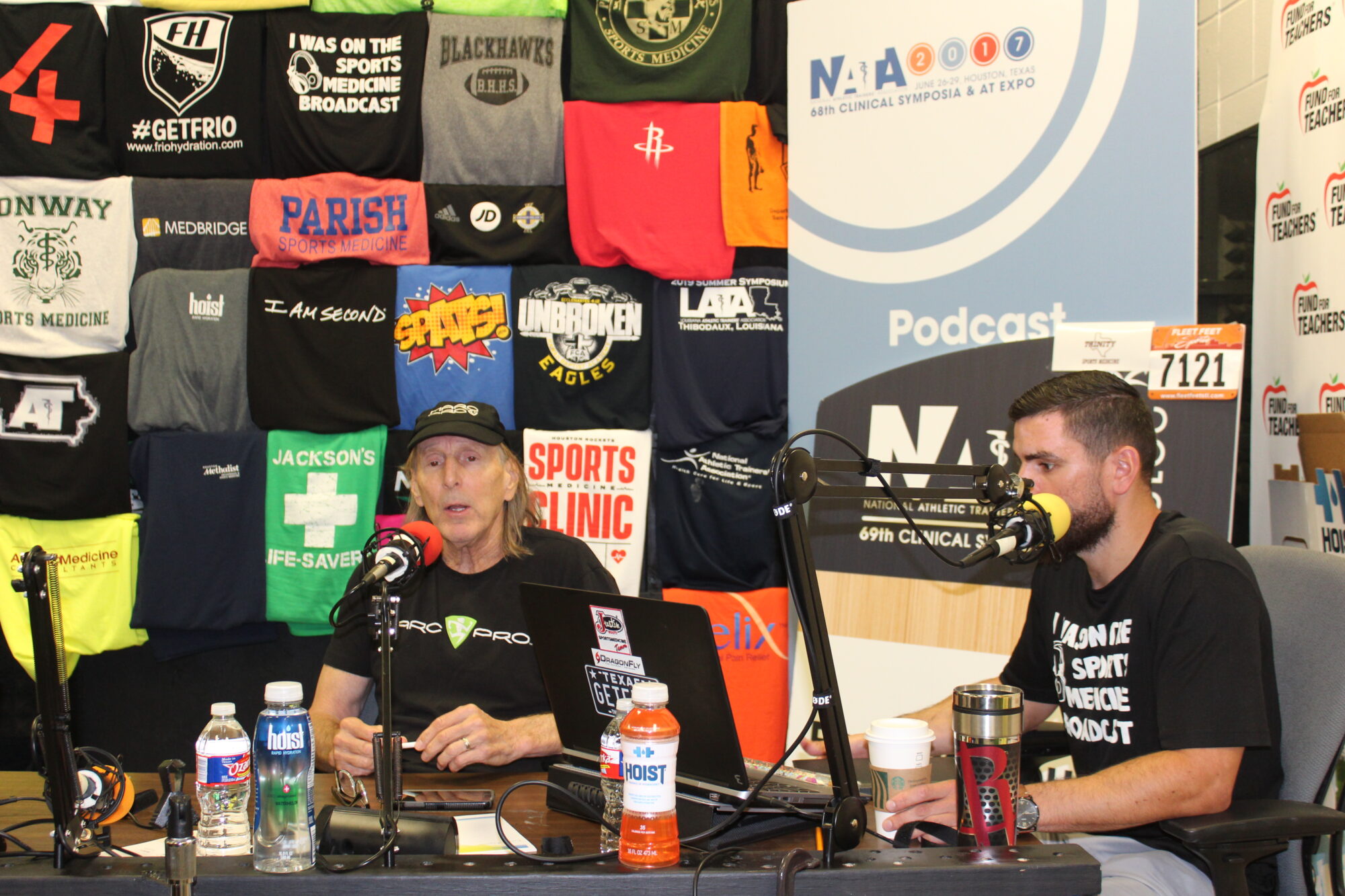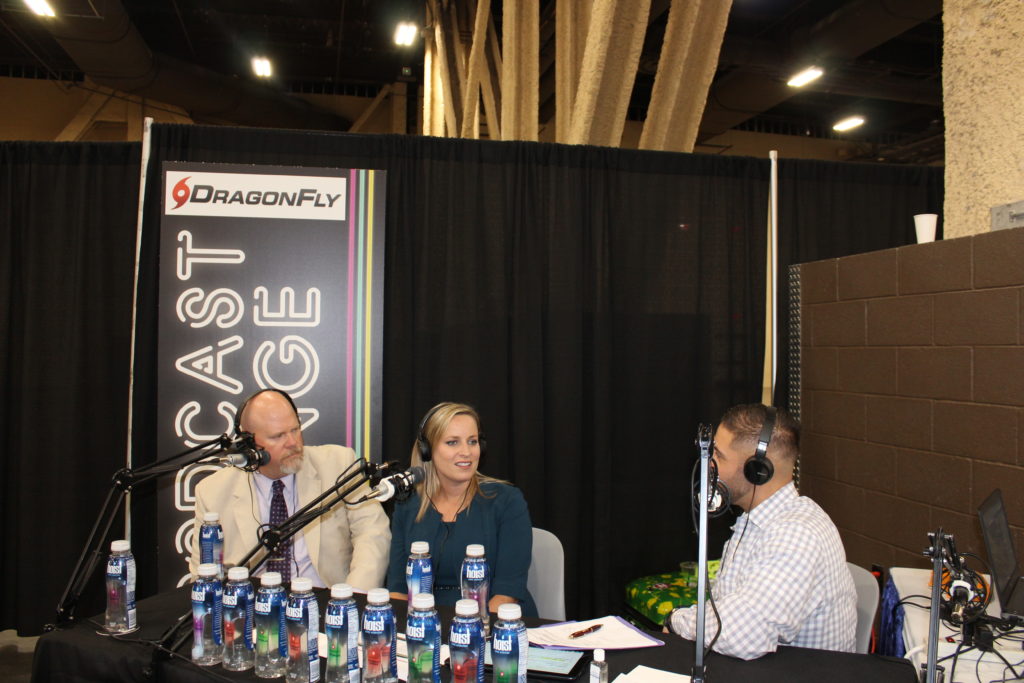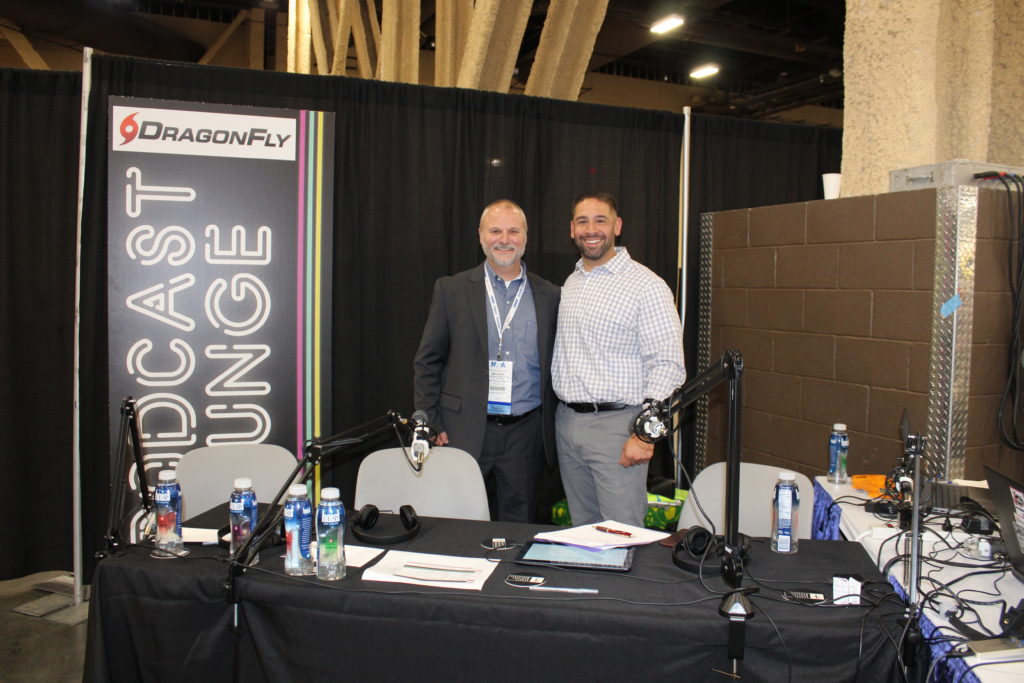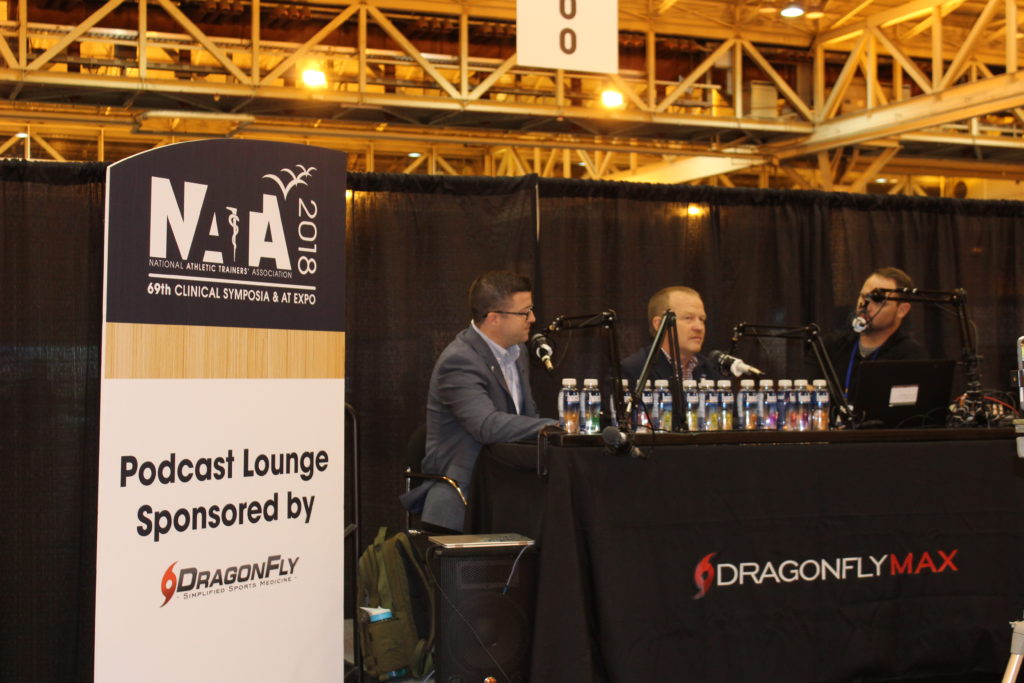Podcast: Play in new window | Download
Is Leadership Curriculum a good way to learn to lead? Can it be added to our current AT course requirements?
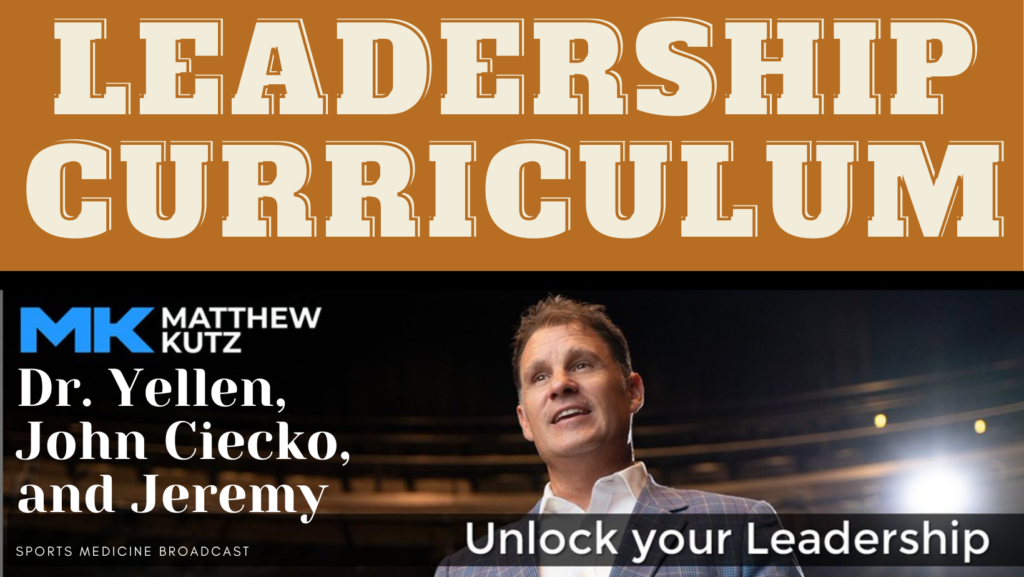
How do we develop leadership in AT?
Curriculum is the hardest way to learn leadership – there is an absence of the practice of AT
“We tend to protect them from the leadership process in their clinical experiences”
The only way it can work is if we integrate them together into the clinical experience.
Trial and error – best most effective and efficient way
Observation
JBY: It is more outcome-based. It is easy to track clinical outcomes.
There are so many types of leadership.
Situational leadership or contextual leadership is critical.
In the current BOC practice areas, only about 2 of 8 deal with sports
How do we develop good leaders?
What makes a good leader?
Are we putting people in the right places to lead?
Energy bus
The military does this really well
They capitalize on the problem-solving process.
If you look at the CAATE and look at the math, .05% of ATs are in leadership as program directors.
MK: we need to be better at recognizing the reality there is a small percentage of us in leadership roles.
- We need to train the program directors
- Increase the exposure of our students
If we think adding clinical skills to our profession is going to change our profession we are sorely mistaken.
People want to know how we can help improve and all we have to offer is a new way to tape an ankle…
The BOC states we have to have skills in leadership…not knowledge of…
We have to be able to change hats.
We are 20 years behind compared to other healthcare professions as far as leadership.
Nursing is by far the leader in my opinion in the leadership curriculum.
We are making a big mistake as a profession by not putting more eggs in this basket.
Can we teach it at the MAT level? How do we measure such an objective subject?
MK: We get scared when we go to the literature.
Leadership is not like a clinical skill
It is not a checkbox item.
Instead of a concrete objective, there should be a certain number of leadership exposures per semester.
Develop a leadership philosophy.
JBY: New 2020 standards have shifted towards outcomes. How are you documenting them?
Checking the boxes is a managerial task, not a leadership task.
Self Assessment – SWAT analysis – how did I move this pile of beans to the other pile.
Operationalizing Leadership is hit or miss.
The MAT is designed for an AT student to ENTER the profession.
Some of the ways we have it is an AT Student Society
We have liaison positions in our program.
Being on a committee at various levels.
When everything is outcome-based how do we say “Leadership was performed”
MK: I hand out sticky notes and ask and ask them to put 3 words for each LEAD
That leaves us with hundreds of words dealing with leadership.
Now we need to make an operational definition from all of these words.
It depends is a real answer as long as you are not using it as a cop-out.
Leadership is a philosophical construct versus a hard skill.
MK: Leadership is not volunteerism
JBY: Education is a business
The student is our customer product and asset…it is so unique.
Why is PA more acceptable than AT in the medical community?
What is your responsibility as a program director? Differences between programs
JBY: When students come in I tell them I am interested in people who are looking to be leaders and agents of change. We will make you into good ATs, but we need you to be the change.
The leader needs contextual intelligence to be really good.
Management is checking the boxes
Leadership is influence
MK: At FIU we focus on helping them answer the “it depends” question.
We are developing leadership behaviors to influence the world, not just AT.
We need to add value to SOCIETY as a whole.
Leadership definition:
MK: leadership is not being the most productive person in the room…it is someone who navigates complexity.
Check out our 2021 Leadership Series
What Comes Next – Lessons From Hamilton the Musical
Leadership AT Home
Make Your Bed
Amy Hamilton
Contact Us:
Dr. Matt Kutz
Dr. Josh Yellen
John Ciecko
These people LOVE Athletic Trainers and help support the podcast:
Frio Hydration – Superior Hydration products.
Donate and get some swag (like Patreon but for the school)
HOIST – No matter your reason for dehydration DRINK HOIST
MedBridge Education – Use “TheSMB” to save some, be entered in a drawing for a second year free, and support the podcast.
Marc Pro – Use “THESMB” to recover better.
